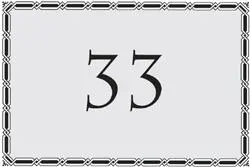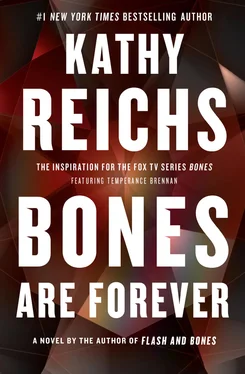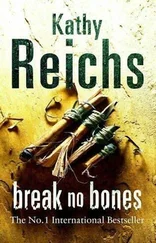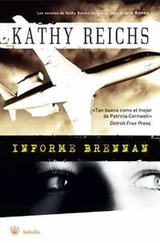Instead I sat, picturing in my mind the mixed blessing that was Lily. Recalling Ryan’s account of her entrance into his life.
Lily’s mother, Lutetia, was an Abaco Islander living in Nova Scotia during Ryan’s disastrous undergrad days. The two weren’t exactly lovers, but they were very, very compatible.
After getting knifed in a bar fight, Ryan changed allegiance from the dark side and joined the SQ. He and Lutetia went their separate ways but hooked up years later for a bonus round of enchantment.
Enter Lily.
Wanting to return to her Caribbean home and fearing Ryan might try to stop her, Lutetia didn’t share the fact of her pregnancy. Though mother and daughter returned to Canada twelve years later, Mama opted not to correct that omission.
Fast-forward to the inevitable.
A few years back, Lily showed up at Daddy’s door. She was seventeen, resentful, and angry as hell. And, it turned out, addicted to heroin.
Again and again Ryan got Lily into rehab. Again and again she went back on the junk.
Like every father, Ryan wanted to shield his child from pain, to protect her from every evil in the world. Lily made that impossible, and the toll on Ryan was heavy. One casualty was our relationship.
No matter. Ryan loved his little girl with every fiber of his being.
Dear God. I was worried about Katy joining the army, and Ryan’s daughter had resumed shooting poison into her veins. I was mortified.
“Is there anything I can do?” I asked.
“Listen?”
“Of course I will. You know I’m always here.”
“Where?” A ghost of the old Ryan grin.
“What?”
“Yellowknife? The Explorer? Trader’s Grill?”
Eye roll. “You know what I mean.”
“I do.” Ryan stroked my hand, then gestured at the books. “Planning to invest in a diamond mine?”
“I’m trying to educate myself on the history of the place.”
“What have you learned?” Ryan signaled for a refill.
“I’ve learned why bling is so bloody expensive. First you have to find the diamonds. Then you have to do a feasibility study to determine how much the mine will cost and how to build it. Then there’s the red tape: environmental agreements, land-use permits, water licenses, impact-benefit agreements, socioeconomic agreements. Approval involves dealing with federal, territorial, and aboriginal governments, regulatory agencies, landowners—everyone from the local farmer right up to the pope.”
The waitress poured Ryan’s coffee.
“Then you have to build the mine, which, in this climate, is a nightmare. The sites are so isolated that all personnel and supplies have to be flown in or transported over winter roads.”
“Ice road truckers!”
“Do you know what it costs to operate an ice road?”
“I do not.”
I flipped to a page in my book. “Lupin runs for almost six hundred kilometers, from Tibbitt Lake, east of Yellowknife, to the Lupin mine site in Nunavut. Construction and maintenance cost roughly six-point-five million dollars annually.” I looked at Ryan. “And the ice roads are only open maybe ten weeks a year.”
“Big bucks.”
“That’s just one budget item. Landing strips, power stations, machine shops, sewage and waste disposal, water treatment plants, telephone networks, storage buildings, offices, processing plants. And the workers can’t exactly drive home each night. The mines have to provide housing, food, recreational facilities. A lot of the miners work two-week rotations. That’s a long time to have nothing to do. Listen to this.”
I gave him no opening to opt out.
“Ekati construction cost nine hundred million dollars. Diavik cost one-point-three billion—that’s billion —dollars. They drained a whole damn lake!”
“Isn’t that the kind of thing that infuriates Mr. Squeeters? By the way, I saw him yesterday. When Rainwater and I drove past, Tyne was pulling out of the Giant gold mine.”
“I thought it was closed.”
“It is. But there are arsenic issues.”
“Arsenic?’
“A by-product of gold production. When the mine shut down, the owners walked, leaving a few zillion tons of the stuff.”
“Don’t mining companies have to fork over millions up front to cover the cost of cleanup before they’re granted permits to operate?”
“Ah, the good old days.” Ryan knocked back the last of his coffee. “Listen, if you’re really interested in this stuff, Rainwater says his great-uncle works at the mining recorder’s office, knows everything there is to know on the subject.”
“Sure, I’ll pop right in on a Sunday.”
“Rainwater says the old coot practically lives there. He’s a retired geology prof, and the government cooked up some sort of make-work position for him after he retired. Or something like that.”
“You and Rainwater going to be pen pals when this is over?”
Ryan raised palms and brows. “What? We’ve been thrown together a lot. Gassing passes the time.” He stood. “Can’t let the grass grow. Keep me in the—”
“Got it. Loop.”
So. Lily had blown rehab. Was that the reason Ryan had been so aloof with me? So snarky with Ollie? Not petty jealousy but anguish over his daughter?
My phone cut me off in midponder. Bergeron. I clicked on.
“I have a name for you.”

“THE DESCRIPTORS GENERATED ONLY ONE MATCH. PROBABLY because a root canal in a third molar is extremely uncommon. Eric Skipper, white male, forty-four, residing in Brampton, Ontario at the time of his disappearance.”
“When did Skipper go into the system?”
“March eighteenth, 2008. Descriptors were provided by Dr. Herbert Mandel of Brampton.”
“Did you contact him?”
“I did. Dr. Mandel informed me that Mr. Skipper had a great deal of dental work, including extractions, restorations, and other root canals. He is sending the record by FedEx.”
“Who filed the MP report?”
I heard paper rustle. “Mr. Skipper’s wife, Michelle. Dr. Mandel says she remains a patient.”
“Did you get her number?”
Bergeron read it to me, and I jotted it down.
“Anything else?”
“I’m an odontologist, Dr. Brennan. Not a detective. From you, I will need the actual X-rays.”
“Coming your way.”
“I will call when the ID is confirmed.”
“Thank you, Dr. Bergeron. I owe you one.”
“You do, indeed.”
I called Maureen King. Voice mail.
It was a nice day. Nothing but sun and temperatures projected to soar into the upper fifties. I decided to visit the coroner’s office.
* * *
“Hey, old lady.”
I was on the walk leading to the Searle Building. I stopped and turned.
Binny was across Forty-ninth Street, straddling his bike on the courthouse lawn. The tuque had been replaced by a baseball cap sitting low on his brows. Same sweats. Same sneakers.
“Hey, bozo,” I said.
“Bozo? That the best you can do?” Underlying the bravado was a tension I hadn’t sensed in our previous encounter.
“Good morning, Mr. Binny Mind-Your-Own-Business.”
“You remember good, for a granny.”
“I’m pretty busy right now.”
“At least you ain’t covered in doodah.”
“Nice turn of phrase.”
Below the bill’s shadow, I saw Binny chew his lip.
“Do you have something to tell me?”
“I never got no pancakes.” Eyes skittish.
I reached into my purse and waggled the muffin I’d pilfered from the breakfast buffet. I know. But meals had been patchy. I wanted backup.
Binny crossed to me and took my offering. His fingers looked small and brown, digging the cake from its little paper cup. There was a crescent of dirt under each of his nails. When finished with the muffin, he wadded the wrapper and cocked his arm.
Читать дальше










